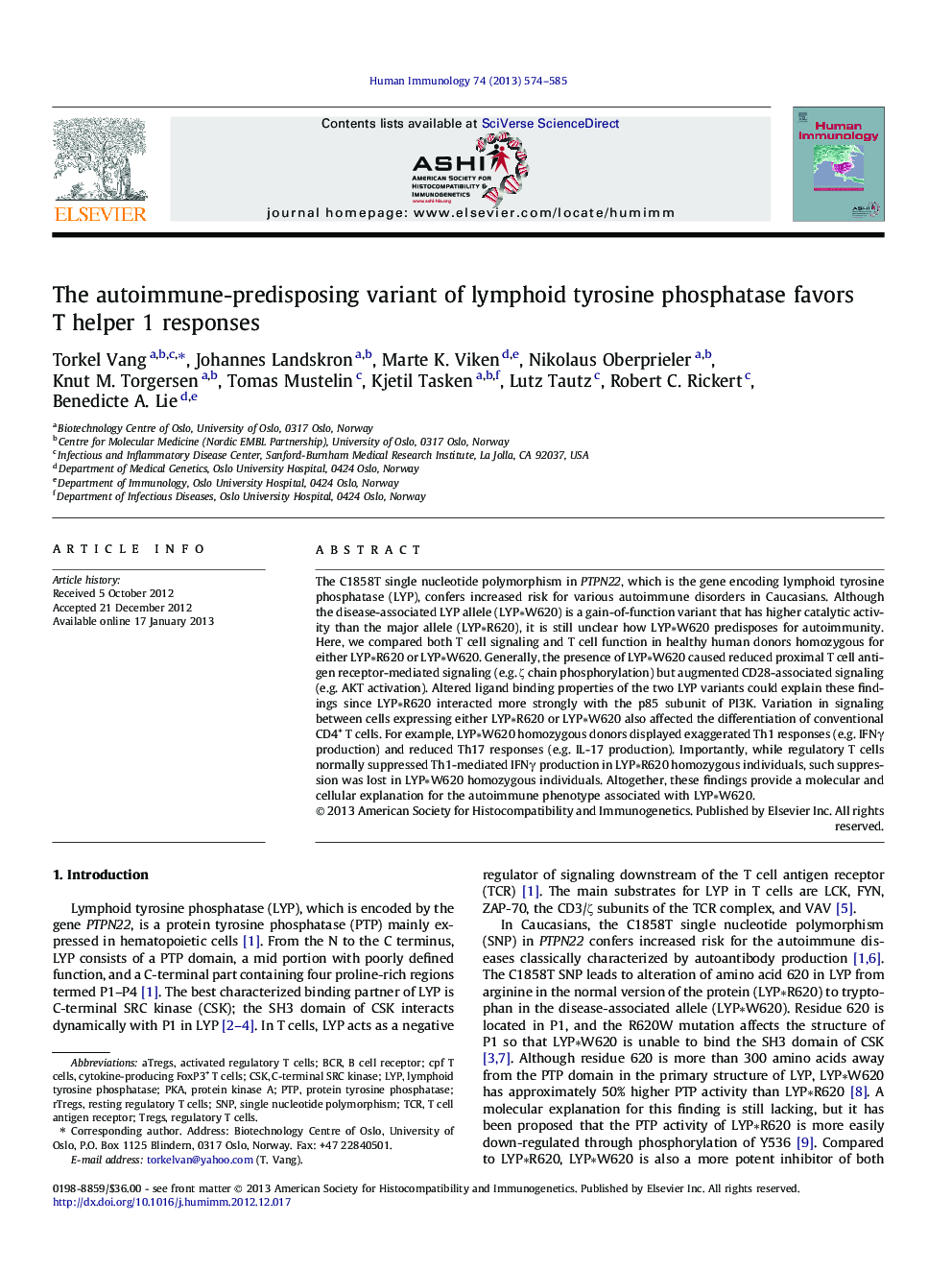| Article ID | Journal | Published Year | Pages | File Type |
|---|---|---|---|---|
| 3350284 | Human Immunology | 2013 | 12 Pages |
The C1858T single nucleotide polymorphism in PTPN22, which is the gene encoding lymphoid tyrosine phosphatase (LYP), confers increased risk for various autoimmune disorders in Caucasians. Although the disease-associated LYP allele (LYP*W620) is a gain-of-function variant that has higher catalytic activity than the major allele (LYP*R620), it is still unclear how LYP*W620 predisposes for autoimmunity. Here, we compared both T cell signaling and T cell function in healthy human donors homozygous for either LYP*R620 or LYP*W620. Generally, the presence of LYP*W620 caused reduced proximal T cell antigen receptor-mediated signaling (e.g. ζ chain phosphorylation) but augmented CD28-associated signaling (e.g. AKT activation). Altered ligand binding properties of the two LYP variants could explain these findings since LYP*R620 interacted more strongly with the p85 subunit of PI3K. Variation in signaling between cells expressing either LYP*R620 or LYP*W620 also affected the differentiation of conventional CD4+ T cells. For example, LYP*W620 homozygous donors displayed exaggerated Th1 responses (e.g. IFNγ production) and reduced Th17 responses (e.g. IL-17 production). Importantly, while regulatory T cells normally suppressed Th1-mediated IFNγ production in LYP*R620 homozygous individuals, such suppression was lost in LYP*W620 homozygous individuals. Altogether, these findings provide a molecular and cellular explanation for the autoimmune phenotype associated with LYP*W620.
